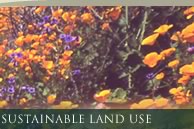Fire!
The family of kestrels appeared to be enjoying a fine party as they dipped and soared, dove and rolled above the scorched hillsides of the arroyo. These rust-colored birds, the smallest and most common of our falcons, did not seem the least troubled by the worst of the three fires which, a few days earlier, had blackened more than two hundred acres of open area grassland and coastal sage scrub not far from my home. Indeed, the hunting appeared to be excellent and, at least for the kestrels, life vibrant and good.
The father of the family, clutching a recent kill, landed near me. It was wary, intermittently flexing its blue wings as if preparing to fly away should I approach more closely. Perhaps it was trying to shield what it held from my view, sensing my interest in the small gray creature fixed firmly in its talons. Any fears it had that I wanted to share its meal were groundless, of course, but I suspected assurances on my part that my concern was only in knowing what it held, would be wasted.
Meanwhile, three recently fledged youngsters cavorted in the crystal air above us, immensely pleased at their own cleverness and maneuverability. They were joined in this sport by the russet-winged female, who also held a remnant morsel of some small animal. This she treated as a between-meals aerial snack, bending her head as she flew to her up-thrust claw to take an occasional nibble.
The male finally rose to perch in a low fire-killed acacia, where it proceeded to gnaw on its prize--a pocket gopher. If the hunters were doing well out of the disaster of the fires, the small mammals, insects and other creatures dependent on fresh foliage for food were clearly in trouble. Insects make up the bulk of the kestrel diet, especially at this time of year when grasshoppers are normally fattening on the overabundance of spring. However, after the fire, with green herbage almost non-existent, the gophers and other sedentary herbivores were being forced to expose themselves to the perils of life in the open to find food. They would have to do that elsewhere, and very soon, the kestrels would have to do that, too. This time they would not have to go far. But next time—and there will be a next time—they may not be so lucky.


